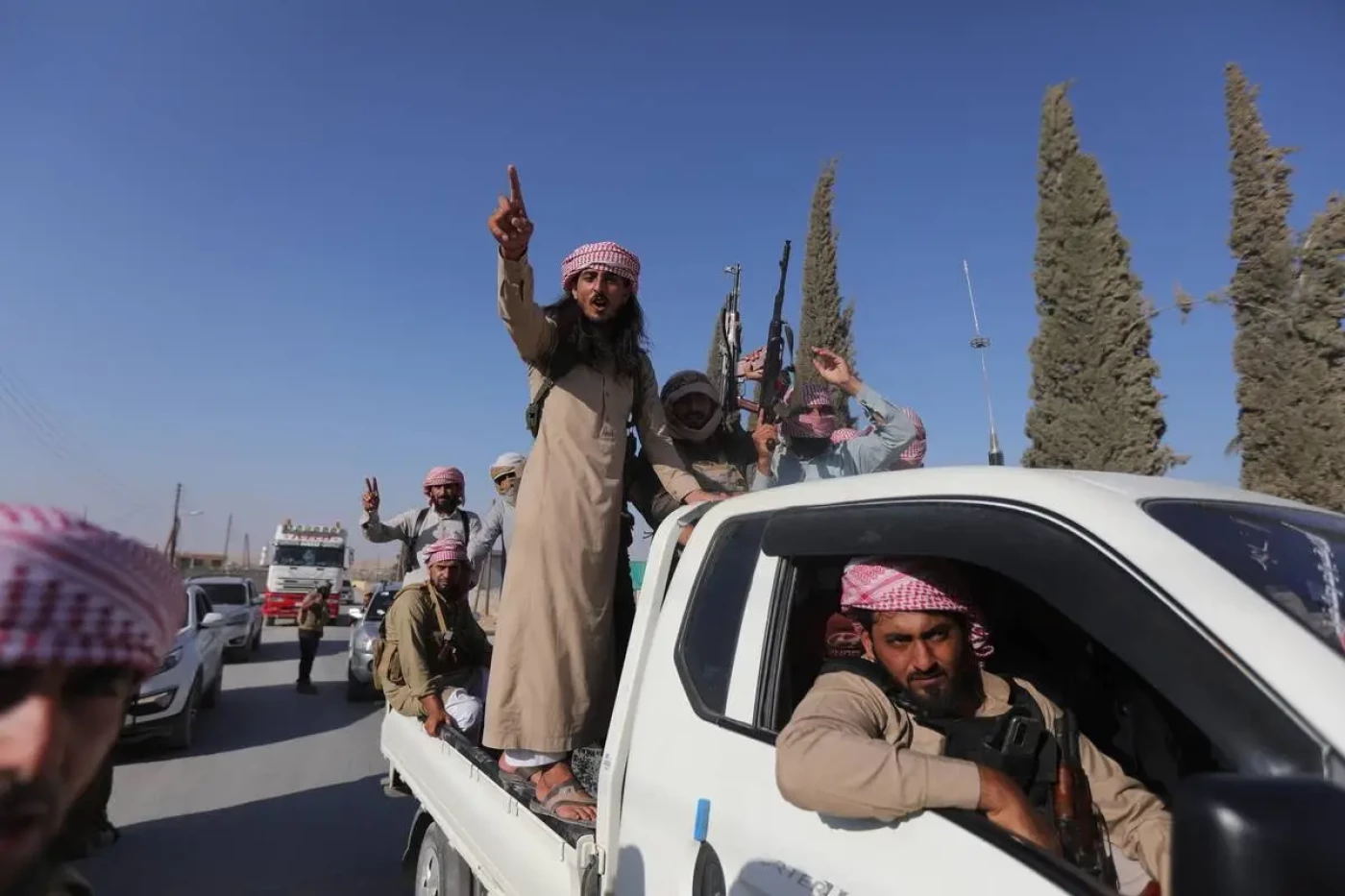ERBIL, Kurdistan Region of Iraq - The recent escalating tensions between Iran-affiliated armed groups and pro-Syrian regime tribes in eastern Syria’s al-Bukamal, on the border with Iraq, could extend to the neighboring country and cause security concerns for Iraq, an expert told The New Region on Monday.
Members of the al-Aqeedat tribe - a highly-powerful group of clans which extends across Syria and Iraq - in eastern Deir ez-Zor’s al-Bukamal area on Friday mobilized against Iranian armed factions which control the area, in particular Regiment 47, which is affiliated to Iran’s Islamic Revolutionary Guard Corps (IRGC), allegedly in protest of the groups’ treatment and practices toward the people of the area.
The tribe launched attacks against the factions and their bases, detaining several senior members of the groups and setting fire to their vehicles and offices, calling for the expulsion of pro-Iran forces from the area.
The tensions resulted in cutting off the al-Qaim border crossing between Iraq and Syria and pushed the pro-Iran groups out of the city.
The militias have reportedly declared a state of maximum alert in al-Bukamal, issued directives to block any entry into and exit from the area, tightened inspections at checkpoints, and instructed members to use weapons against any security threats to their military bases.
Sarmad al-Bayati, an expert in security affairs, said that the escalations in al-Bukamal pose a threat to Iraqi security.
“Al-Bukamal is a city which is very close to the Iraqi borders and the two sides are connected through tribal ties… There is a fear that the problem will spread due to the extension of tribal ties into the Iraqi depth, and this development will have serious repercussions on the security level,” Bayati told The New Region on Monday.
He noted that Iraqi security forces will quickly interfere in case of such a development, but stressed that the situation still poses a threat to Iraqi security, adding that “the coming hours may reveal things more clearly.”
The security expert claimed that the current events in eastern Syria are part of a campaign to “clip Iran’s wings and reduce its influence” in the region.
Al-Bukamal has been under the control of pro-Iran militias since the expulsion of the Islamic State (ISIS) in 2017. The armed groups set up military bases along the border with Iraq, in an effort to secure the Iran-Syria border crossing.
“The city of al-Bukamal is a very important strategic axis on the Tehran-Beirut line, meaning there is an Iranian outlet to the Mediterranean and a common border with Israel. It represents the first entry point for Iranian supplies across the Syrian-Iraqi border,” Bayati explained.
Sherwan Yousif, a journalist based in northeast Syria, said that many tribes joined arms with the pro-Iran factions in Deir ez-Zor after 2017 in an effort to strengthen their position in the face of other tribes, “seeing in the Iranian militias an entity capable of protecting them.”
After asserting control over the city, the Iran-affiliated militias would try to win over the tribes through economic gains, by offering them a share in the goods smuggled and exchanged with areas under the control of the Syrian Democratic Forces (SDF) on one hand and Iraq on the other, according to Yousif. In other instances, the militias would use intimidation to secure the tribes’ allegiance.
Following a meeting between Syrian government officials and representatives of the tribes in al-Bukamal, an agreement was reportedly reached to hand over all suspects involved in a recent attack on one of the tribal leaders’ house and properties, in addition to blocking the installment of military checkpoints by any party except those operating under the regime’s security apparatus, effectively pushing the Iran-backed armed factions out of the area and replacing them with regime forces.
The Iranian government has been a strategic ally and one of the main supporters of Bashar al-Assad's Syrian government since the start of the Syrian civil war in 2011, but developments in recent months has led to speculations that Damascus could be trying to limit Iranian influence within the country.
Additional reporting by Lava Alhaj Osman



 Facebook
Facebook
 LinkedIn
LinkedIn
 Telegram
Telegram
 X
X


